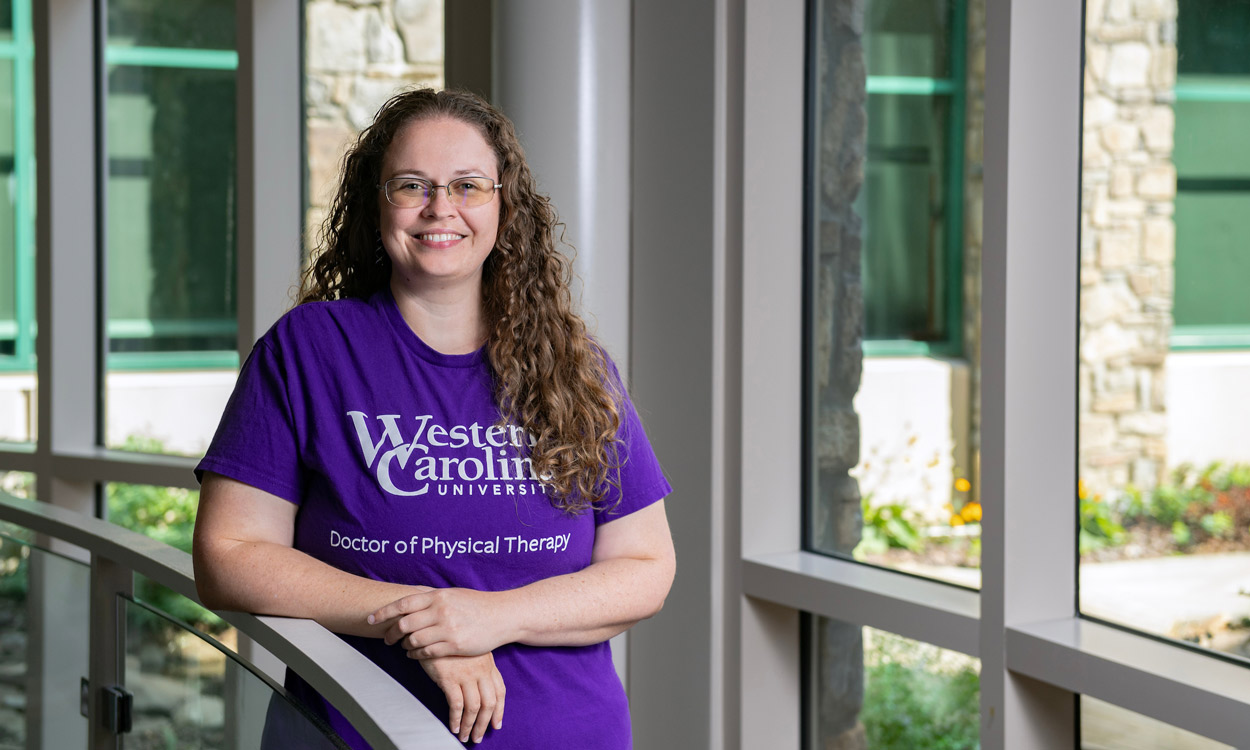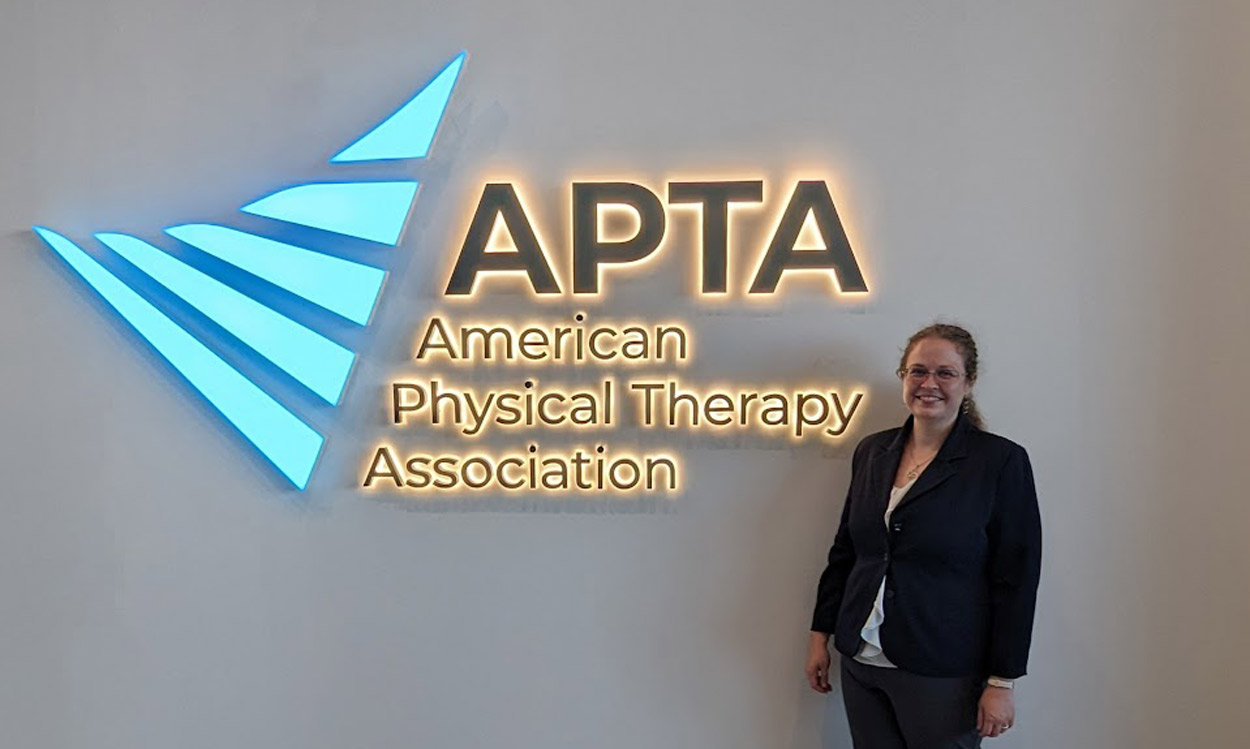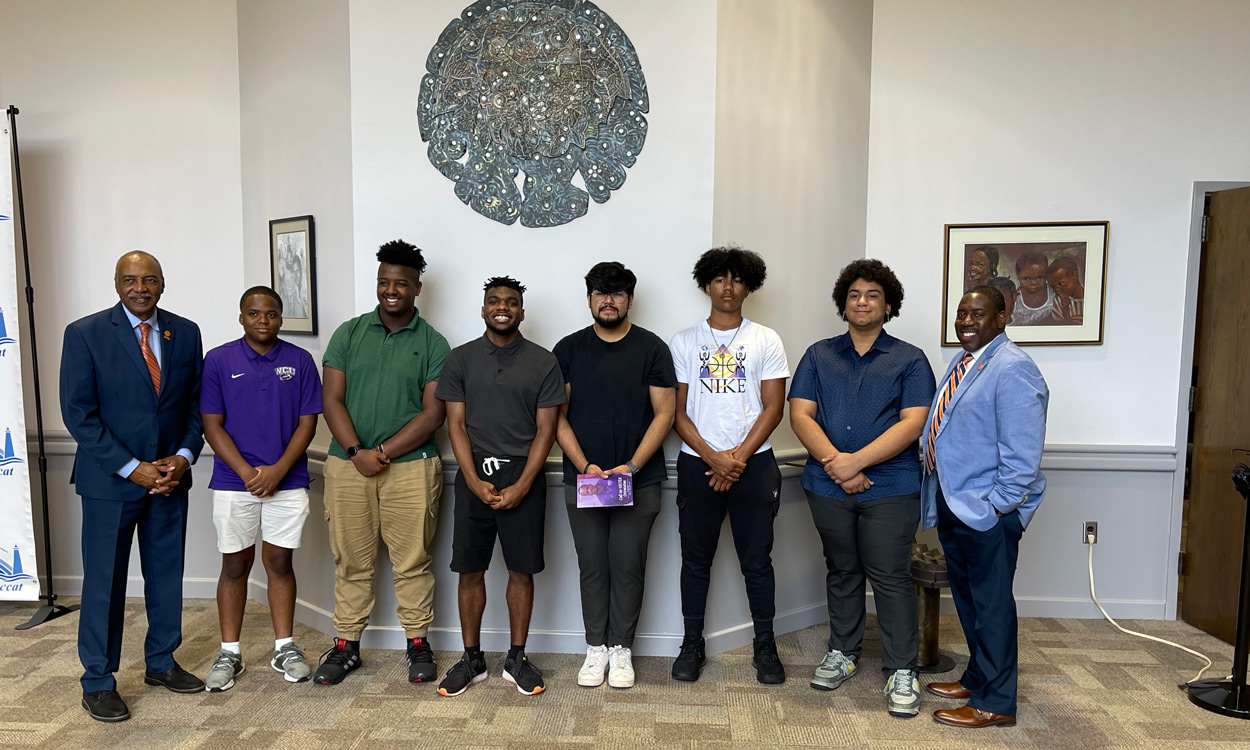Physical therapy grad student gets to see legislative side of health care

Ruby Dixon
By Julia Duvall
Ruby Dixon, a third-year student in Western Carolina University’s Doctor of Physical Therapy program, considers the entire state of North Carolina her home, having lived in different parts of the state throughout her life.
Dixon recently got to represent the Old North State and experience the legislative part of the physical therapy field with other U.S. representatives by volunteering as the assistant to the vice speaker at the American Physical Therapy Association House of Delegates in Washington.
“The APTA is the organization that officially represents physical therapists, physical therapist assistants and students,” Dixon said. “They guide the ship so to speak; the House of Delegates release statements supporting certain ideas such as addressing pay inequity or support how to recognize when patients are in abusive households and incorporating those policies on how to handle these types of situations.”
The delegates are a group of people elected to represent the individual physical therapist and physical therapist assistants by bringing the concerns of those practicing clinicians to the house.
“The delegates from the elected people will put together pieces of legislation called motions and they bring that to the House of Delegates and discuss it or have a debate and then vote on whether or not to pass it,” Dixon said. “In my role, I kept track of the speaker queue and time because each speaker had a three-minute limit. If you are still speaking when the time limit is up, a loud, giant bell will ring.”

Dixon said communicating with the delegates is a vital part of getting concerns addressed.
“You have to communicate really well because the delegates work hard to represent the interests of the individuals, but they don't know what you want unless you tell them,” Dixon said. “Town halls are a great opportunity for PTs, PTAs and students to come and discuss their concerns.”
Elizabeth Wark, assistant professor in the Doctor of Physical Therapy program, shared her excitement for Dixon seeking out this opportunity to network and learn the inner workings of physical therapy policy.
“Ruby sought out this experience and then really embraced it,” Wark said. “She started out as a volunteer and then she went further to become the assistant of the vice speaker. I am just so excited that Ruby got to see the policymaking body representing all states and all specialty sections of our profession at work.”
Dixon was able to see firsthand how the delegates make change in the physical therapy profession.
“Ruby really got to see how we as clinicians work toward our vision of improving and optimizing movement and the human experience,” Wark said. “I hope this experience serves as a catalyst for her and other students for a lifelong career of involvement and leadership in our professional organization in terms of governance but also advocacy for our patients which is what this is really all about.”
Dixon was thrilled to be in the same room with like-minded clinicians who shared the same passion for patient advocacy.
“It's a huge group of physical therapists from across the country and a lot of brain power in one room,” Dixon said. “You can feel the energy and passion. In particular, this past delegation that we had there was a representative from Hawaii who had her whole heart in the legislation and really advocated for increased access in rural communities.”
One of the motions that came to the floor was to allow each of the physical therapy sections to have one physical therapy assistant representative on their delegation and give those clinicians a voice.
“This used to be the case for years but then it was dissolved for a variety of reasons and delegates have been trying to get it back,” Dixon said. “It was really special to be on stage for that vote because from where I was sitting, I could see the votes coming in before they were displayed on the screen, so I knew it had passed before the rest of the room. You are not technically allowed to clap, but it was so fun to see the faces light up and hear the applause. It was a big change that people have been fighting to get for quite a while now and I am personally glad it passed because I don't really know how an organization can represent all the individuals in that profession if they do not have a seat at the table.”
Physical therapy assistants are educated through a two-year associate’s degree and a physical therapist goes through a three-year doctorate program.
At one point during the debate, the floor was opened for people to speak about other topics.
“One of the topics was how to improve the profession for those practicing in 2030, so students that are in high school now,” Dixon said. “I loved that as a whole, the House of Delegates made time and space for that; we heard a lot of wonderful ideas that turned into longer conversations later than evening.”
Dixon finished her time by attending a gathering afterwards on the rooftop of the APTA headquarters which overlooks Reagan International Airport.
“Looking out over the runway, I felt extremely grateful for the experience and being with the other representatives from all over our country,” Dixon said. “I was most especially looking forward to bringing back what I had learned to my home state and back to WCU.”

